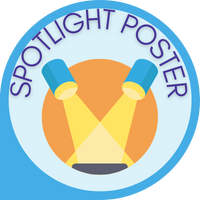Back
Pharmacovigilance
Poster Session: Spotlight Session - Cancer
(AE) Use of Selective Serotonin Reuptake Inhibitors (SSRI) and Risk of Breast Cancer
Friday, August 26, 2022
8:00 AM – 6:00 PM CEST
Location: Hall E South
Publication Number: 321
Tomas Log
– Nord University, Mo i Rana, Nordland, NorwayMarit Waaseth, PhD
– Associate Professor, UiT The Arctic University of Norway, UiT The Arctic University of Norway, Tromso, Norway
Co-Author(s)
Presenting Author(s)
Background: Breast cancer is the most common cancer among women and selective serotonin reuptake inhibitors (SSRI) are frequently used among Norwegian women. Previous studies report somewhat conflicting results on a potential association between SSRI and breast cancer.
Objectives: To investigate a potential association between breast cancer and use of SSRIs.
Methods: Setting: This prospective record-linkage study coupled data on self-reported use of SSRI from the Norwegian Women and Cancer Study (NOWAC) with data on breast cancer from the Cancer Registry of Norway. The overall response rate was 56 % (113 363 women out of 203 231 invited). After excluding participants with missing data on SSRI and those with a previous or present cancer diagnosis, 89 279 were included in the analysis. The participants were 46-68 years old at baseline (2003-2010).
Exposures: The exposure variable was use of SSRI. Alcohol consumption, body mass index (BMI, kg/m2), age, current use of contraceptives, current use of postmenopausal hormone therapy (HT), maternal breast cancer, age at menarche, menopausal status, number of children, age at first birth and tobacco smoking were included as covariates for adjustment.
Main outcome measure: Breast cancer
Statistics: hazard ratios with 95% confidence intervals for variables potentially associated with breast cancer were estimated by Cox proportional hazard regression.
Results: Approximately 16.1 % of the study population had missing values on one or more of the variables included in the COX regression, leaving 74 879 to be included in the analysis. Among these, 1429 were diagnosed with breast cancer during follow-up. There were 78 cases (2.0 %) of breast cancer among users of SSRI and 1351 cases (1.9 %) among non-users, resulting in a HR of 1.04 (95 % CI 0.82 - 1.31).
Several of the covariates were associated with breast cancer. HT use, premenopause, maternal breast cancer, increasing age, BMI, lower age at menarche and having 1-2 children after the age of 25 were all associated with a higher risk of breast cancer.
Conclusions: The study found no association between the use of SSRIs and breast cancer. This is in agreement with most of the other studies which have investigated this association.
Objectives: To investigate a potential association between breast cancer and use of SSRIs.
Methods: Setting: This prospective record-linkage study coupled data on self-reported use of SSRI from the Norwegian Women and Cancer Study (NOWAC) with data on breast cancer from the Cancer Registry of Norway. The overall response rate was 56 % (113 363 women out of 203 231 invited). After excluding participants with missing data on SSRI and those with a previous or present cancer diagnosis, 89 279 were included in the analysis. The participants were 46-68 years old at baseline (2003-2010).
Exposures: The exposure variable was use of SSRI. Alcohol consumption, body mass index (BMI, kg/m2), age, current use of contraceptives, current use of postmenopausal hormone therapy (HT), maternal breast cancer, age at menarche, menopausal status, number of children, age at first birth and tobacco smoking were included as covariates for adjustment.
Main outcome measure: Breast cancer
Statistics: hazard ratios with 95% confidence intervals for variables potentially associated with breast cancer were estimated by Cox proportional hazard regression.
Results: Approximately 16.1 % of the study population had missing values on one or more of the variables included in the COX regression, leaving 74 879 to be included in the analysis. Among these, 1429 were diagnosed with breast cancer during follow-up. There were 78 cases (2.0 %) of breast cancer among users of SSRI and 1351 cases (1.9 %) among non-users, resulting in a HR of 1.04 (95 % CI 0.82 - 1.31).
Several of the covariates were associated with breast cancer. HT use, premenopause, maternal breast cancer, increasing age, BMI, lower age at menarche and having 1-2 children after the age of 25 were all associated with a higher risk of breast cancer.
Conclusions: The study found no association between the use of SSRIs and breast cancer. This is in agreement with most of the other studies which have investigated this association.


